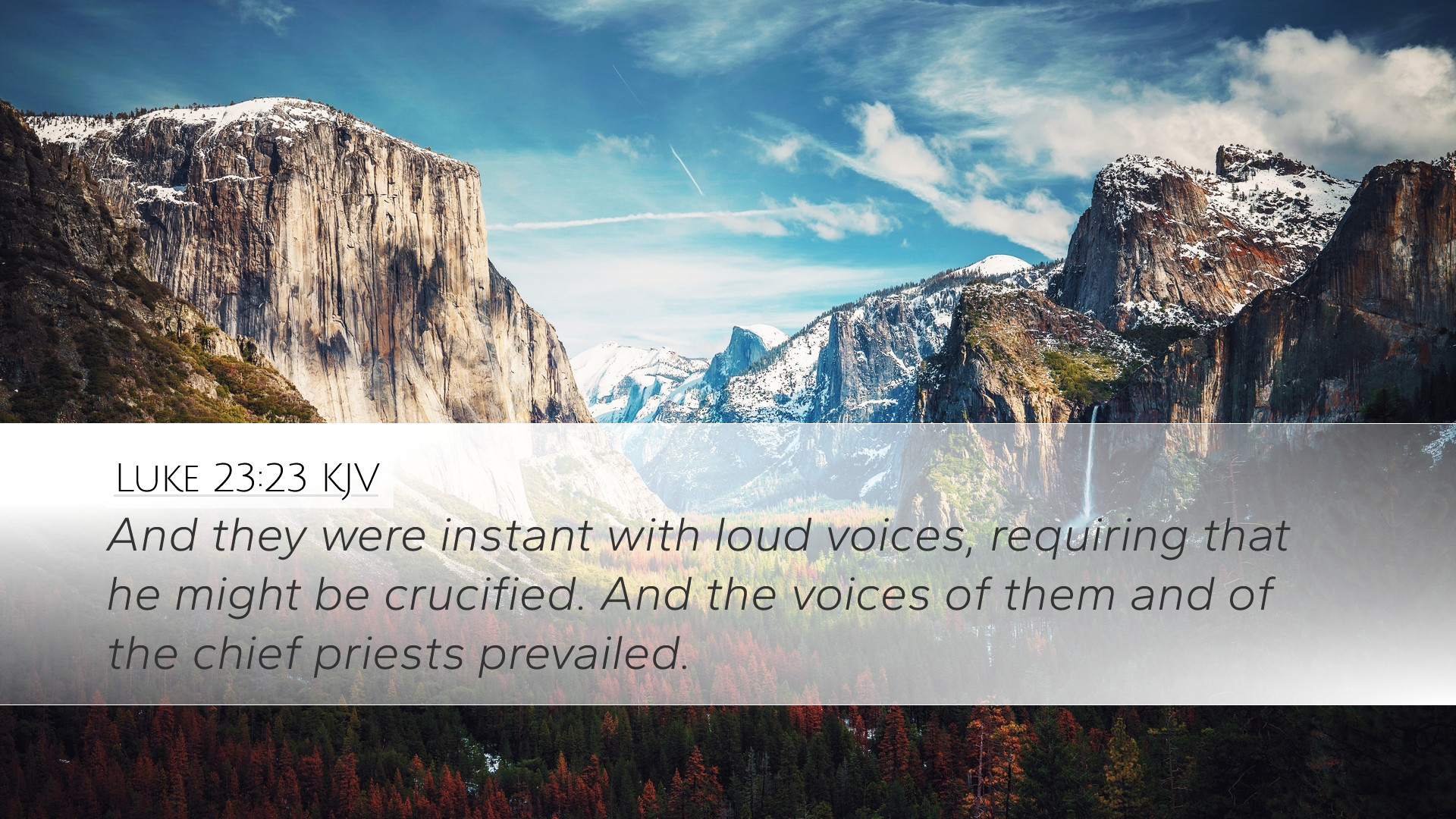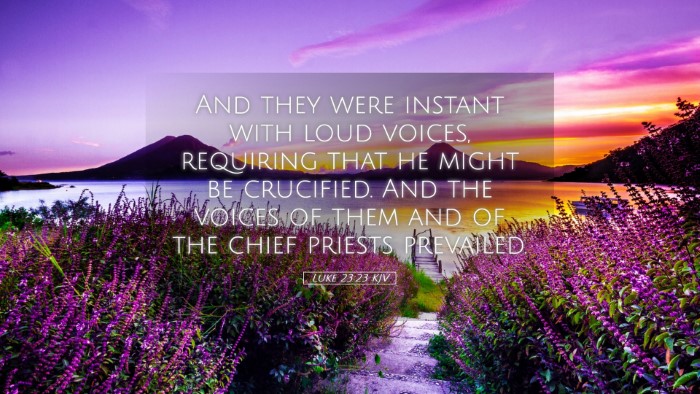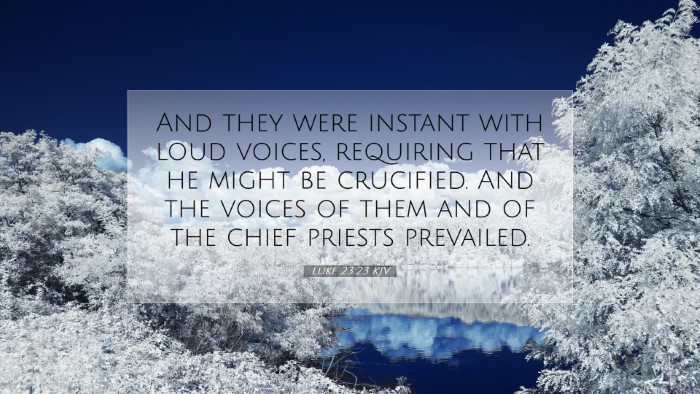Commentary on Luke 23:23
Verse (Luke 23:23): "But they were insistent, demanding with loud voices that He be crucified. And the voices of these men and of the chief priests prevailed."
Introduction
Luke 23:23 depicts a critical moment in the trial of Jesus, emphasizing the tension between political authority and the will of the masses. This verse encapsulates the fervent insistence of the crowd, as well as the power dynamics at play in the decision to crucify Jesus. The analysis of this passage through the lenses of prominent biblical commentators reveals several profound insights that are applicable to today’s understanding of justice, authority, and the question of public opinion in spiritual matters.
Historical Context
Before delving into the commentary, it is essential to consider the historical context of this verse. Jesus has undergone a series of trials before the Jewish Sanhedrin and is now presented before Pilate, the Roman governor. The public’s demand for crucifixion is not merely a spontaneous outburst; rather, it reflects a culmination of leading sentiments that had been stirred up by the religious leaders against Jesus. Understanding this backdrop helps to comprehend the weight of the crowd’s insistence.
Commentary Insights
Matthew Henry's Perspective
Matthew Henry offers a thoughtful reflection on the mob mentality that leads to the condemnation of Jesus. He points out that the clamorous voices of the mob overshadow reason and justice, bringing into focus the folly of following the crowd. Henry emphasizes that:
- The Danger of Public Opinion: The crowd demands crucifixion not through careful reasoning but emotional fervor. This illustrates the fickleness of public sentiment.
- The Role of Leaders: The chief priests and leaders incite this reaction, revealing the tragic influence that leaders can wield over the masses.
- Justice Undermined: The demand for crucifixion despite Jesus' innocence speaks to a justice system swayed by popularity rather than righteousness.
Albert Barnes' Commentary
Albert Barnes provides another layer of understanding, particularly focusing on the insistence of the crowd and the nature of their demands:
- The Volume of Voices: Barnes notes that the “loud voices” signify not just the demand for Jesus’ crucifixion but also the urgent need for the crowd to assert their collective will against a quiet strength. This demonstrates a level of desperation and determination among the populace.
- Authority versus Popularity: He highlights that Pilate, as a representative of Roman authority, was caught between upholding justice and yielding to the weight of public demand.
- The Faith of the Righteous: This moment reflects the broader theme within Scripture of the righteous being oppressed by the unrighteous, a motif that recurs throughout biblical history.
Adam Clarke's Analysis
Adam Clarke brings a deeper theological reflection to this passage by examining the moral implications of the trial:
- The Sovereignty of God: Clarke posits that this moment reveals the divine plan being played out, where Jesus’ crucifixion is necessary for the fulfillment of prophecies regarding the Messiah.
- Understanding Free Will: He underscores the paradox of free will, where humans exercise their choices, yet unknowingly align with the divine narrative, thus fostering profound discussions about predestination and human agency.
- Lessons for Believers: Clarke suggests that this moment serves as a cautionary lesson for believers about the influences of societal pressures and the importance of steadfastness in faith amidst public dissent.
Applications and Reflections
Bringing together the insights of these commentators yields valuable applications for contemporary Christian life:
- The Call for Discernment: Christians today must learn to discern truth amid clamorous demands of society. The voices that demand conformity can often drown out divine truth.
- Moral Courage: Just as Pilate faced pressure from the crowd, believers are encouraged to stand firm in their convictions, even against popular opinion.
- Awareness of Influence: The influence of leaders over the masses calls for caution among those in positions of authority within the church, prompting them to lead with integrity and righteousness.
- Understanding Suffering: The narrative of Jesus’ trial and crucifixion offers believers deep insights into suffering. It teaches that injustice often surrounds suffering, yet God’s purpose can prevail through it.
Conclusion
Luke 23:23 serves as a poignant reminder of the complexities of human nature, authority, and divine sovereignty. The voices that advocated for the crucifixion of Jesus echo through time, challenging believers to reflect on their own responses to truth amid societal pressures. By merging historical insights with theological reflection, this commentary invites each reader to engage deeply with the text, recognizing the richness of biblical narratives and their implications for faith and practice in today’s world.


